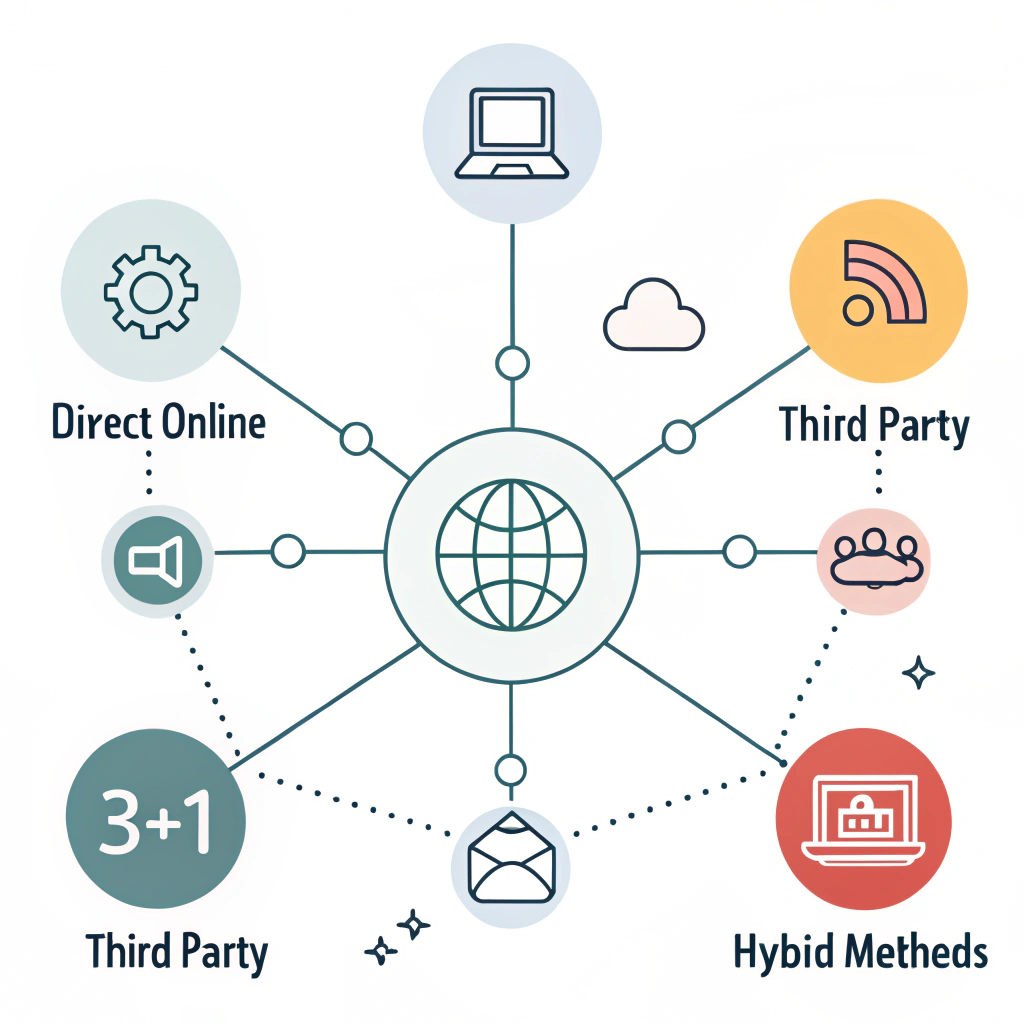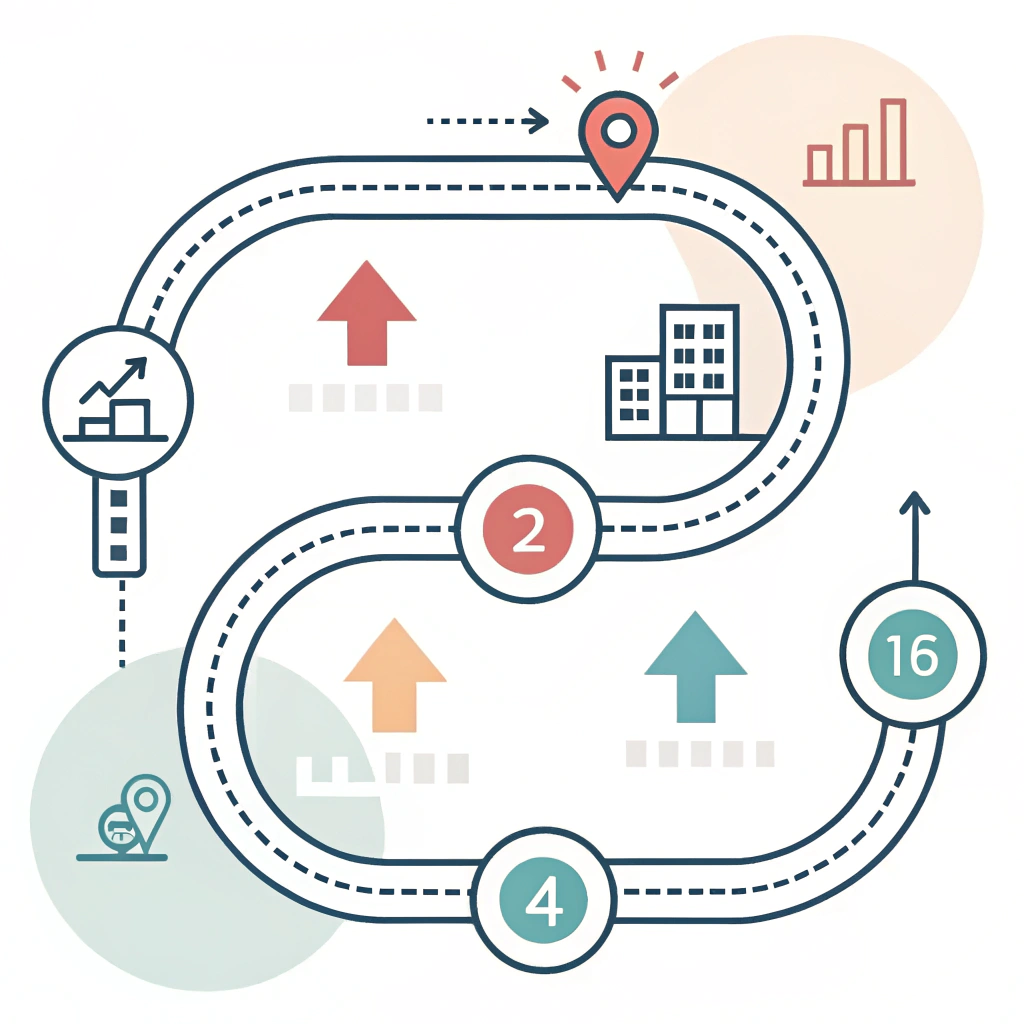Quick Answer: Diversifying distribution channels for padel rackets by mixing direct distribution, third‐party partnerships, and online platforms is essential for mitigating inventory risks. In this article, we compare various models, outline their pros and cons, and provide actionable guidance to help you build a resilient supply chain.
The padel equipment industry is evolving rapidly, and for business professionals working in the supply chain, managing inventory risk1 is a pressing concern. With unpredictable market demand and increased competition, relying on a single distribution channel can lead to severe disruptions. By diversifying your sales channels, you can not only mitigate these risks but also enhance overall supply chain resilience and operational efficiency.
In this article, we will compare the key distribution models available for padel rackets, backed by industry data and practical examples. Our focus is on helping you, as a purchasing manager or distribution head, navigate the complex market landscape with ease. Using a comparison framework, we shed light on the unique benefits and challenges of each model, and provide a roadmap for optimizing your distribution strategy.
Inventory risk in the padel racket distribution is multifaceted. Companies face challenges such as unpredictable seasonal demand, the pressure of maintaining quality, and high storage and transportation costs. These issues are amplified when supply chain disruptions occur—whether due to economic fluctuations, logistical setbacks, or sudden market shifts. A disruption in one distribution channel can significantly impact your overall business performance.
Key Challenges Include:
• Unpredictable demand cycles
• High storage and logistics costs
• Supply chain disruptions caused by external factors
• The risk of overstocking or stockouts
For instance, companies that lean heavily on a single channel often struggle during unexpected slowdown periods, leading to an imbalance between inventory levels and customer demand. To overcome these challenges, a diversified distribution approach is necessary.
To address these challenges, it’s critical to evaluate various distribution channels and their ability to balance risk and reward. The primary distribution models in the padel racket industry include:
- Direct Distribution: Selling directly to consumers or retailers.
- Third-Party Distributors2: Leveraging specialized distribution partners.
- Online Platforms: Utilizing e-commerce channels.
- Hybrid Models3: Combining traditional and digital distribution methods.
Below is a comparison table that summarizes the core aspects of each model:
| Distribution Channel | Advantages | Disadvantages | Suitable For |
|---|---|---|---|
| Direct Distribution | Complete control, higher margins, direct customer feedback | Requires robust logistics, higher marketing efforts | Established brands with existing channels |
| Third-Party Partners | Access to wider markets, reduced logistics burden, established networks | Lower profit margins, less control over end-consumer experience | Emerging brands seeking market reach |
| Online Platforms | Global reach, lower overhead costs, real-time analytics | Intense competition, dependency on digital marketing | Fast-moving consumer segments, tech-savvy firms |
| Hybrid Models | Flexibility, risk diversification, optimized inventory balance | Complex management, coordination challenges | Large enterprises with diverse portfolio |
When evaluating which channels to use, it is essential to consider the following factors:
Understanding your target market is crucial. If your buyers are increasingly moving online, adopting robust e-commerce strategies can lead to increased reach and better inventory turnover. Online platforms provide direct access to customers and real-time sales data, enabling swift responses to changing market dynamics.
Assess the logistic capabilities of each channel. Direct distribution may offer higher margins but can also lead to increased operational costs, such as warehousing and transportation. On the other hand, working with third-party partners can optimize logistics by leveraging their established networks. Balancing these factors is key to reducing overall inventory risk.
A diversified distribution strategy enhances flexibility. By utilizing multiple channels, you can quickly shift inventory from one channel to another in response to fluctuations. This agility ensures that your products, such as our range of padel rackets at NEX Padel, always meet market demand, thereby reducing the risk of stockouts or overstocking.
Many industry leaders have successfully diversified their distribution channels to reduce risks and improve profitability. For example, renowned brands such as Hirostar, Reebok, and Starvie not only rely on traditional distribution but also embrace online marketplaces and bespoke logistic services to cater to global demand. Their approach reveals several critical insights:
- Improved Agility: Diversification enables businesses to reallocate resources quickly. In times of supply disruption, closely integrated systems across channels allow for effective inventory redistribution.
- Cost Reduction: While third-party distributors may require sharing margins, the overall cost savings from decreased logistics management can be significant.
- Enhanced Customer Reach: By maintaining a multi-channel presence, companies enjoy a broader market footprint, leading to increased brand visibility and stability.
At NEX Padel, we understand these dynamics deeply. Our commitment to producing high-performance padel rackets—ranging from Diamond, Round, to Teardrop types, and customizable options—is supported by a robust production system. Our diverse supply chain management incorporates risk diversification strategies that align closely with these industry practices.
Let’s break down the approach into actionable strategies that you can implement:
Begin with a thorough analysis of your existing channels. Identify areas with higher risks, such as over-reliance on one distribution method. Assess the market penetration of each channel using key performance indicators (KPIs) like sales volume, turnover rates, and customer feedback.
Based on your evaluation, identify complementary channels that can fill gaps. For instance, if you rely heavily on brick-and-mortar stores, consider adding an online platform to capture digital demand. If margins are under pressure, working with third-party distributors can offer cost-efficient solutions.
It is crucial to have clear policies across your supply chain. This includes ensuring consistent product quality, standardized pricing strategies, and integrated IT systems for real-time inventory tracking. A hybrid model might require investing in software to synchronize orders from multiple channels.
The market and customer preferences are always evolving. Constant monitoring of performance metrics, along with regular feedback loops, will help you adjust your strategies in time. For example, seasonal trends in padel racket sales can be managed more effectively by dynamically reallocating inventory among channels.
Invest in technology that can offer data analytics and predictive insights. Tools that provide real-time tracking of inventory across channels can be invaluable. Digital dashboards4 and integrated CRM systems can help ensure that any potential risk is spotted early.
Here is a checklist to ensure you have a solid strategy in place:
| Action Item | Description | Importance |
|---|---|---|
| Evaluate current channels | Analyze sales, costs, and risks in existing systems | High |
| Identify complementary options | Explore online, hybrid, or third-party partnerships | High |
| Standardize quality control | Ensure all channels meet the same quality standards | Medium |
| Integrate IT systems | Deploy unified inventory management software | High |
| Regular performance reviews | Set KPIs and review at set intervals | Medium |
A well-executed diversified strategy offers significant benefits for B2B sports equipment suppliers:
Using multiple channels minimizes the risk of damage from sudden disruptions in any single channel. This buffer can safeguard your business during uncertain times.
By having a presence in several markets, you can better adapt to changes in consumer behavior or global market trends. The ability to shift resources dynamically is a major asset in maintaining supply chain stability.
Multiple distribution channels provide a broader view of customer preferences and buying patterns. This enhanced understanding can drive strategic decisions and tailored marketing efforts, ensuring your products meet market demands more effectively.
Diverse channels contribute to increased brand visibility. The more touchpoints your brand has with potential buyers, the stronger its market presence becomes. This helps in establishing credibility and boosts customer trust.
At NEX Padel, we are not only a leading manufacturer but also a strategic partner for many global brands. Our comprehensive approach to padel racket production includes:
• Advanced production techniques using materials from fiberglass to 3k, 12k, and 18k carbon fiber5
• Rapid prototyping and just-in-time delivery
• Fully customizable options including shape, print, color, hand grip, and handle cover logos
Our operational framework is designed to tackle inventory risk by maintaining solid relationships with various distribution channels. Whether you choose direct distribution, third-party partnerships, or hybrid models, our reliable production and quality assurance systems ensure you receive the best product every time.
Our industry expertise enables us to provide valuable insights into effective distribution models, ensuring that our partners always have the right strategy in place to navigate market challenges. In a competitive market, a flexible, well-integrated distribution strategy is key to resilience, and at NEX Padel, we are committed to helping you achieve that.
A diversified distribution strategy is not merely a trend; it is a necessity in today’s volatile market environment. By comparing different channels, understanding their unique benefits and limitations, and implementing robust operational and technological strategies, you can significantly mitigate inventory risks and enhance supply chain resilience.
Your distribution decisions should be data-driven and reflect the broader market dynamics. We encourage you to start by evaluating your current channels, experimenting with complementary strategies, and continuously monitoring performance. With a proactive approach, you can secure a competitive edge, adapt to market shifts, and sustain growth over the long term.
Remember, balanced inventory risk management paired with diversified distribution channels is the blueprint for a resilient supply chain. For further assistance or inquiries, feel free to reach out to us at NEX Padel, where we are ready to support your business with our industry-leading products and expertise.
People Also Ask
Q: How can diversifying distribution channels reduce inventory risks?
A: Diversifying distribution channels spreads risk across different sales methods, enabling companies to quickly adapt to market changes. It ensures that a disruption in one channel does not significantly impact overall inventory levels.
Q: What are the benefits of using online platforms for padel racket distribution?
A: Online platforms offer global reach, lower overhead costs, and real-time sales analytics. They allow businesses to track market demand more efficiently and adjust inventory, thereby reducing the risk of stock imbalances.
Q: What strategies should businesses adopt to improve supply chain resilience in the padel market?
A: Businesses should evaluate their current channels, identify complementary options like third-party distributors or online sales, integrate advanced IT systems for inventory tracking, and continuously monitor performance to adapt quickly to market changes.
-
inventory risk: Click here to learn more about managing uncertainties in inventory levels and how diversified strategies can buffer against supply disruptions. Back to term. ↩
-
Third-Party Distributors: Click here to discover how leveraging specialized distribution partners can expand market reach and optimize logistics for your business. Back to term. ↩
-
Hybrid Models: Click here to explore the benefits and challenges of combining traditional and digital distribution methods for greater operational flexibility. Back to term. ↩
-
Digital dashboards: Click here to understand how real-time analytics and dashboard tools can enhance inventory management and decision-making processes. Back to term. ↩
-
3k, 12k, and 18k carbon fiber: Click here to read about the properties and benefits of different carbon fiber specifications in high-performance sports equipment manufacturing. Back to term. ↩







